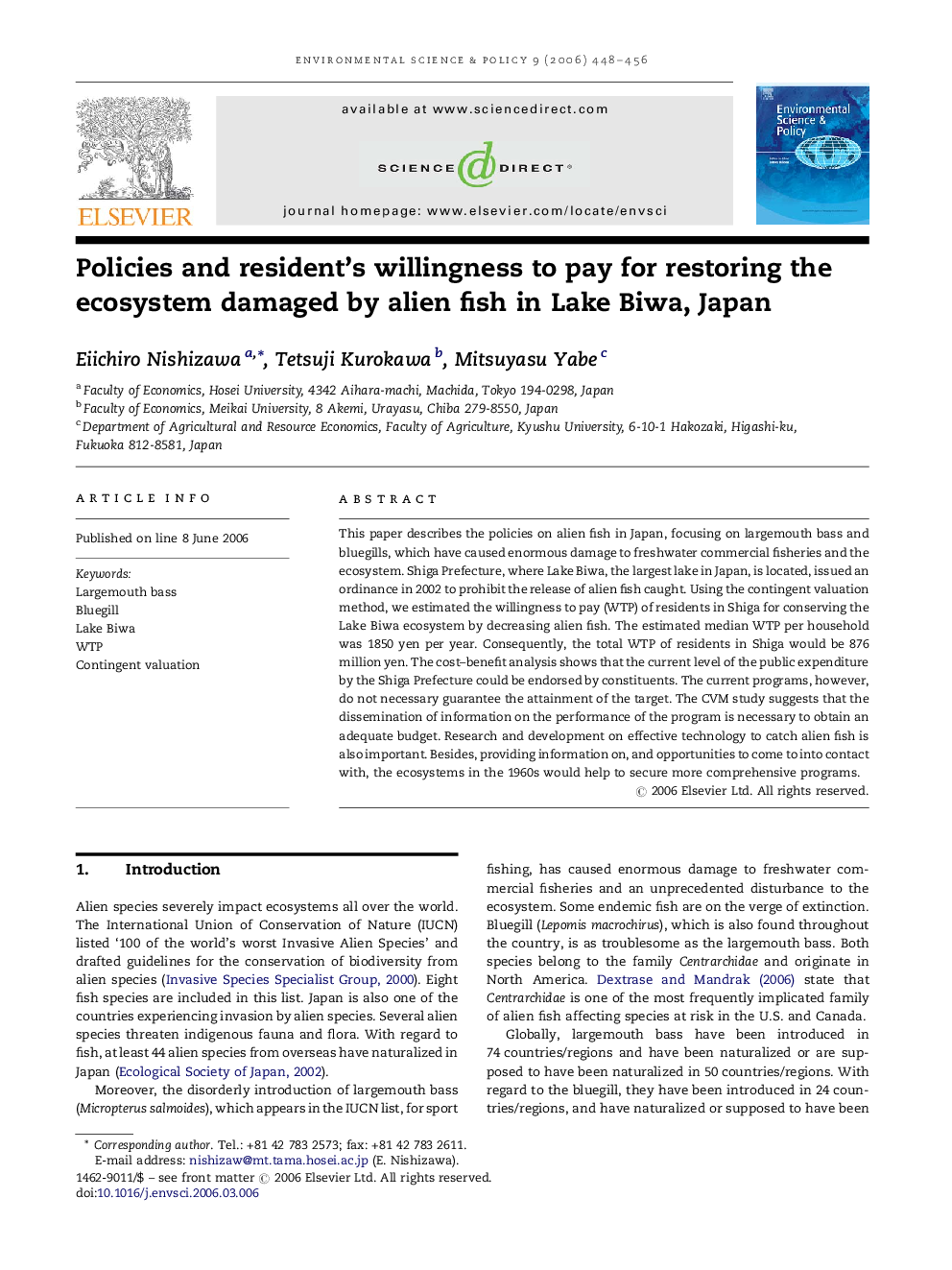| Article ID | Journal | Published Year | Pages | File Type |
|---|---|---|---|---|
| 1054135 | Environmental Science & Policy | 2006 | 9 Pages |
Abstract
This paper describes the policies on alien fish in Japan, focusing on largemouth bass and bluegills, which have caused enormous damage to freshwater commercial fisheries and the ecosystem. Shiga Prefecture, where Lake Biwa, the largest lake in Japan, is located, issued an ordinance in 2002 to prohibit the release of alien fish caught. Using the contingent valuation method, we estimated the willingness to pay (WTP) of residents in Shiga for conserving the Lake Biwa ecosystem by decreasing alien fish. The estimated median WTP per household was 1850 yen per year. Consequently, the total WTP of residents in Shiga would be 876 million yen. The cost-benefit analysis shows that the current level of the public expenditure by the Shiga Prefecture could be endorsed by constituents. The current programs, however, do not necessary guarantee the attainment of the target. The CVM study suggests that the dissemination of information on the performance of the program is necessary to obtain an adequate budget. Research and development on effective technology to catch alien fish is also important. Besides, providing information on, and opportunities to come to into contact with, the ecosystems in the 1960s would help to secure more comprehensive programs.
Related Topics
Physical Sciences and Engineering
Energy
Renewable Energy, Sustainability and the Environment
Authors
Eiichiro Nishizawa, Tetsuji Kurokawa, Mitsuyasu Yabe,
